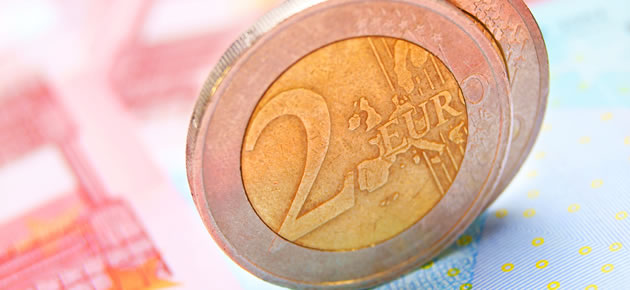After languishing close to a three-and-a-half year low against the US Dollar and hitting multi-month and multi-year lows against several of its other major rivals, the ‘Aussie’ enjoyed something of a rebound during local trading.
The ‘Aussie’ posted a modest gain against the Euro as comparatively positive economic data from Australia helped assuage rate cut fears.
The National Australia Bank’s monthly gauge of business conditions climbed from minus three in November to plus four in December, a sign that the nation’s flagging economy might have reached a turning point.
The survey highlighted improvements in hiring, trading conditions and profitability.
Meanwhile the Australian conference board leading index increased by 0.2 per cent in November following a gain of 0.5 per cent in October, and a measure of business confidence held at a positively revised 6 in the last month of 2013.
As the reports added to the case for the Reserve Bank of Australia holding off issuing a rate cut in the near future the ‘Aussie’ was boosted.
According to economist Craig James; ‘The Reserve Bank would be encouraged by the way the economic recovery is panning out. The low Australian Dollar is helping with the structural rebalance across the domestic economy.’
Even concerns regarding the stability of emerging market economies, like Turkey and Argentina, didn’t prevent the Australian Dollar staging a modest rebound.
The South Pacific currency’s gains on the Euro were aided by the news that the German import price index stagnated in December rather than advancing 0.2 per cent on the month as forecast by economists.
This marked a twelfth successive month of declines.
The fall was largely the result of slumping energy prices and a dip in the cost of certain metals.
On the year German import prices fell by 2.3 per cent rather than dropping the 2.2 per cent expected.
Later today the EUR/AUD pairing could experience additional movement as the Australian Westpac Leading Index is published.
As China is Australia’s main trading partner, the Asian nation’s leading index will also be of interest.
Tomorrow EUR/AUD movement will most likely be driven by German GfK consumer confidence figures.
Euro (EUR) Exchange Rates
[table width=”100%” colwidth=”50|50|50|50|50″ colalign=”left|left|left|left|left”]
Currency, ,Currency,Rate ,
Euro,
Euro,
Euro,
Euro,
Euro,
[/table]
